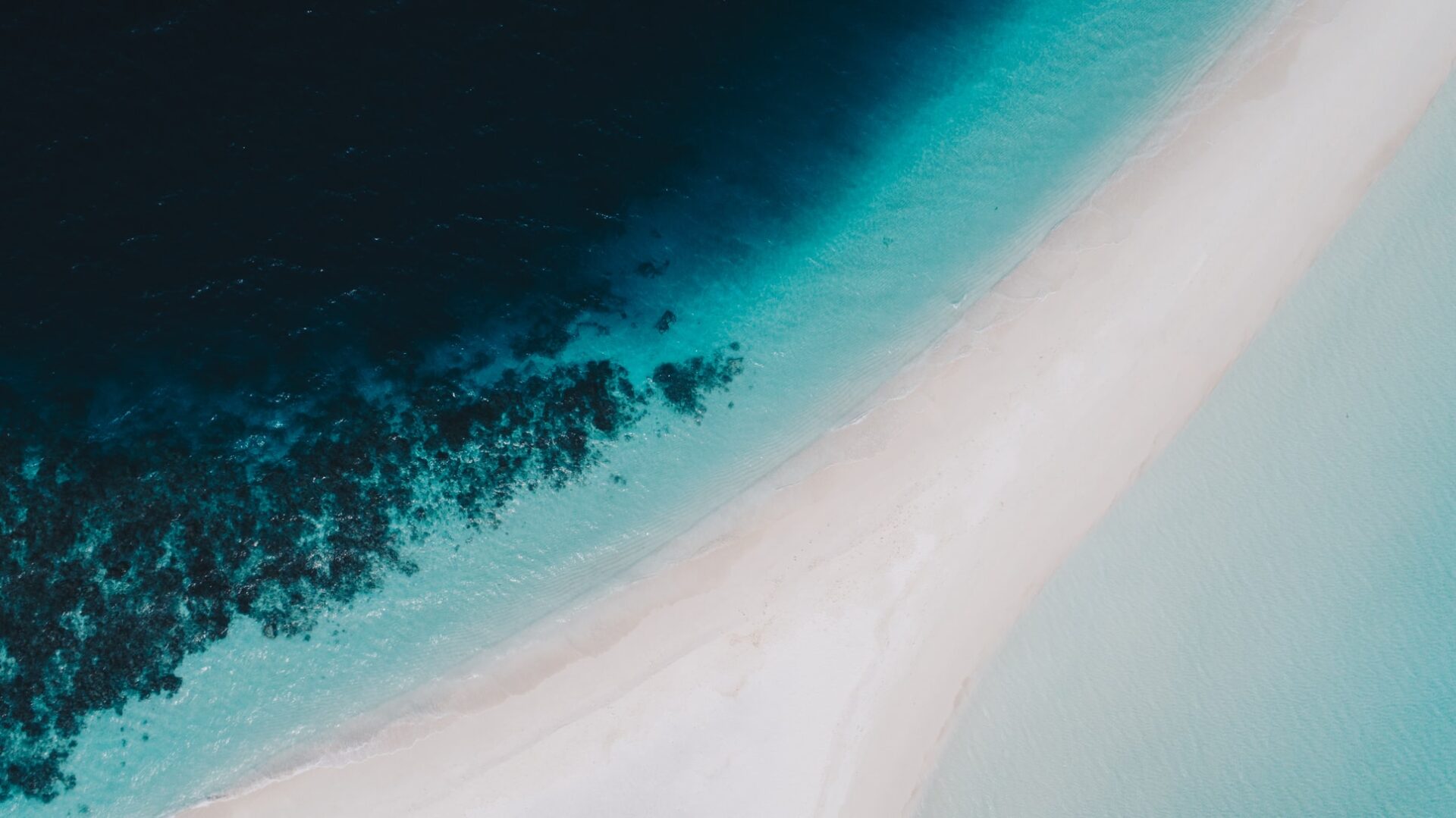Why we love the Maldives
A scatter of islands in the Indian Ocean, the Maldives are about space, light and sea. Days drift between reef and horizon, dhonis move quietly through narrow channels, the air smells faintly of salt and suncream. It’s a place that feels both far away and strangely simple – sea, sky, sand, repeat. This guide shares everything you need to know before you go.
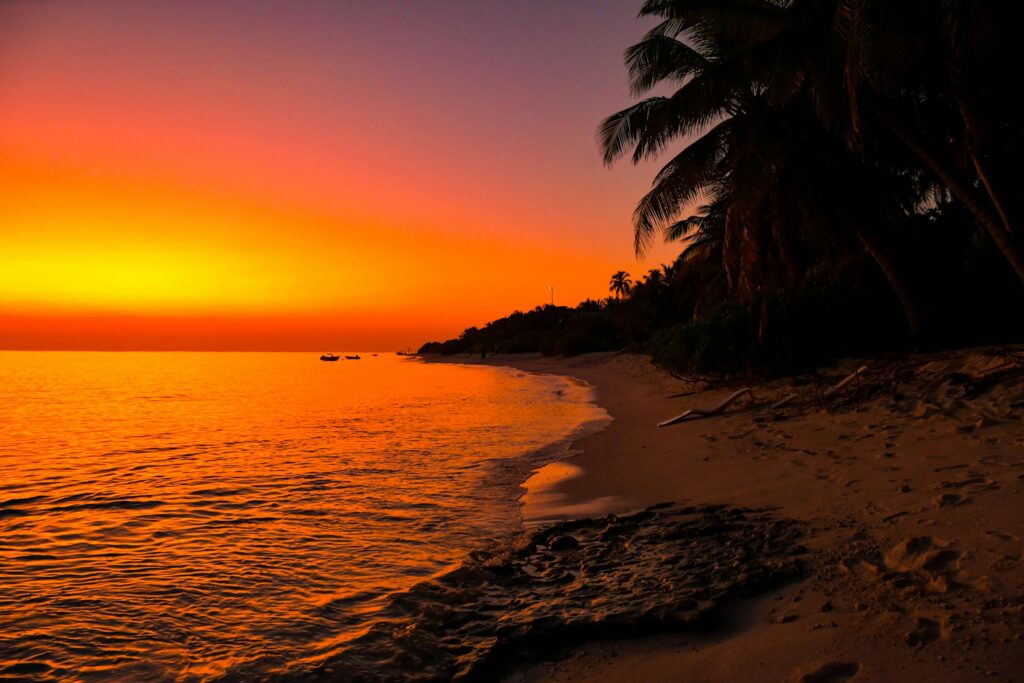
Entry requirements
Tourist visas are granted on arrival for all nationalities. To travel, you’ll need:
– A passport valid for at least six months after the end of your holiday.
– A completed Traveller Declaration form within 96 hours of travel.
– A passport in good condition – immigration is strict about damaged passports.
If you’re transiting through another country en route to or from the Maldives, check that country’s entry requirements as well. If you’re unsure about paperwork or specific documents, our Operations team are here to help.
Health and safety
We aren’t certified to give medical advice, so we recommend you consult your doctor or a travel clinic about your vaccination history and discuss any additional vaccinations you may need for your trip. We recommend this guide for vaccination information and advice on bringing medication into the country.
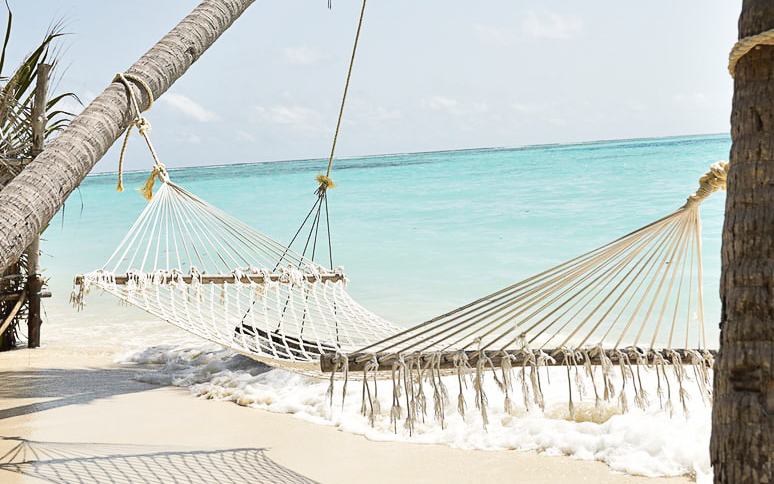
Getting around
On arrival at Velana International Airport, your representative will meet you and escort you to your resort transfer – by speedboat, domestic flight, seaplane or sometimes a combination of both. You’ll be booked onto the next available transfer based on your international flight arrival.
Seaplane flights are usually confirmed around 24 hours in advance, as schedules often depend on weather conditions. We’ll keep you updated and provide your meeting point and emergency contact details in your travel app.
Baggage
Domestic flights:
– 20 kg checked baggage per person.
– 5 kg hand luggage (maximum size 20” x 12” x 7”).
– Excess baggage charged at approximately USD 2.00 + taxes per kg.
Seaplanes:
– 20 kg checked baggage per person.
– 5 kg hand luggage.
– Excess baggage charged at approximately USD 5.00 + taxes per kg.
– No single bag can exceed 32 kg.
If you’re travelling with children or additional sports equipment, please let us know in advance so we can check specific allowances.
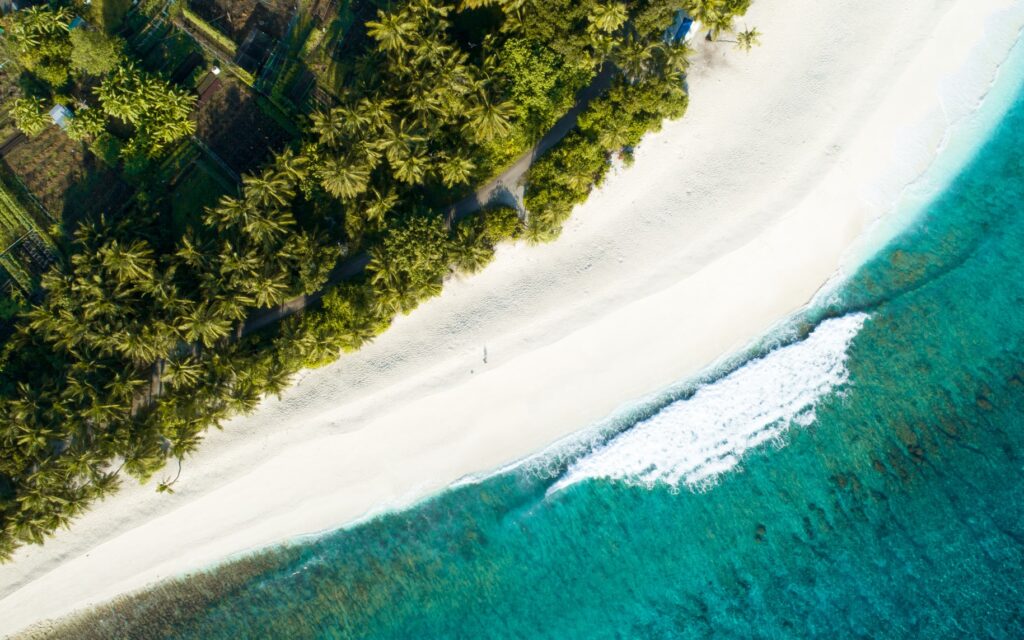
Climate and packing tips
We strongly recommend that you carry overnight essentials and any medication in your hand luggage, particularly if connecting to an onward destination, in the event of lost luggage or delays.
The Maldives enjoys a warm, tropical climate year-round, with average temperatures around 30°C. The best time to visit is during the dry season from December to April, when skies are blue and humidity is lower. The wet season, from May to November, brings short, heavy showers but also vibrant marine life for divers and snorkellers.
Packing tips:
– Light, breathable clothing for the tropical heat.
– Swimwear and beachwear.
– A light jumper or shawl for cooler evenings on the water.
– Reef-safe sunscreen, sunglasses and a sun hat.
– Waterproof phone case or dry bag for boat transfers and excursions.
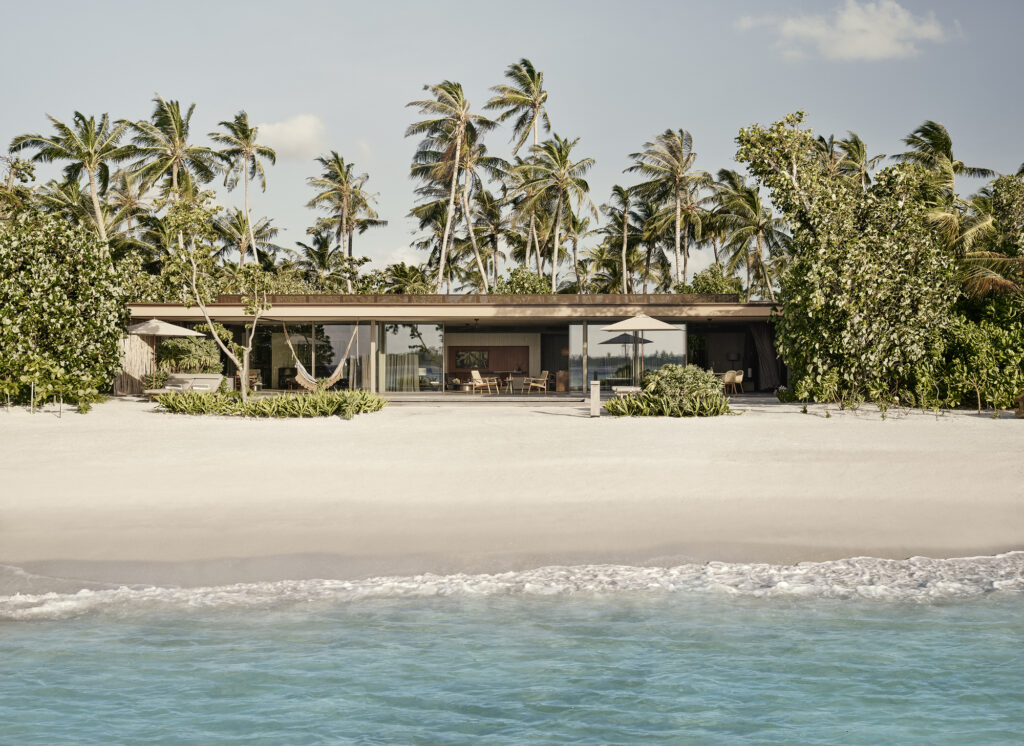
Laws and customs
Here are our top tips for respecting Maldivian laws and customs – but always check official government guidance for further details.
– The Maldives is a Muslim country. Public displays of affection and revealing clothing should be avoided outside resort islands.
– Alcohol is not available on inhabited local islands but is served in resorts.
– Nudity and topless sunbathing are not permitted.
– Be respectful of local customs during religious festivals such as Ramadan.
Money matters
The Maldivian Rufiyaa (MVR) is the local currency, but US dollars and euros are widely accepted at resorts. Most resorts also accept card payments for almost everything.
If you’re planning to visit local islands or smaller cafés and shops, it’s a good idea to carry some local currency for small purchases.
Tipping
Tipping in the Maldives is not mandatory, but its more common in tourist areas. Most resorts add a service charge of around 10% to bills, but small personal tips can make a big difference to staff.
Here’s a simple guide to help you plan:
Resort staff: USD 2–5 per person per day for housekeeping or waitstaff, usually left at the end of your stay
Luggage porters: USD 1–2 per bag
Boat crews or seaplane staff: USD 5–10 per person for good service
Dive guides or instructors: USD 10–15 per person per day, depending on the length and quality of dives
Spa therapists: USD 5–10 after treatments if you feel it’s deserved
Tips are best given in cash (US dollars or Maldivian Rufiyaa). While many resorts accept card payments, cash tips go directly to the staff member who served you.
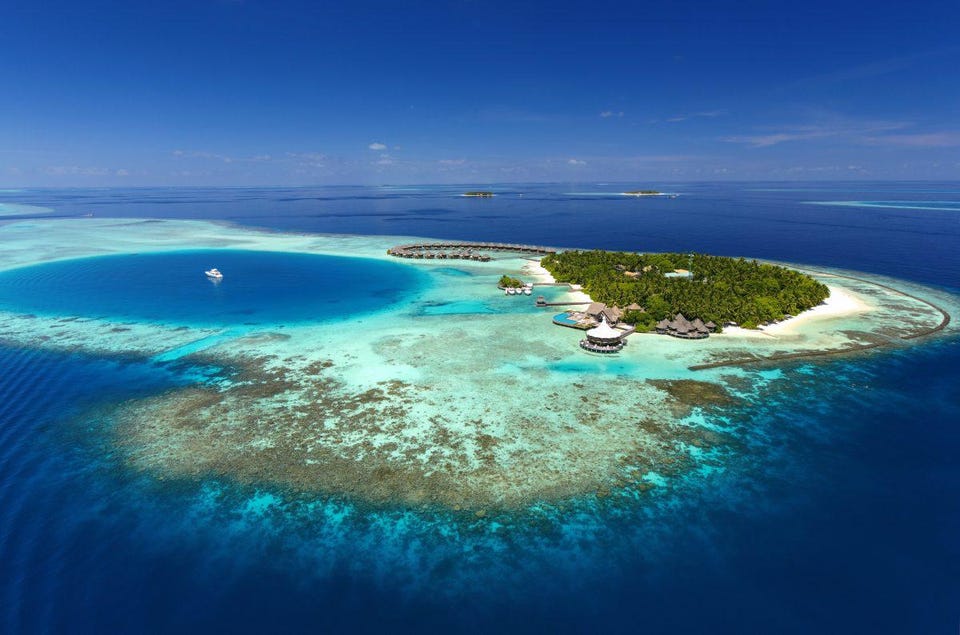
Practicalities
Plug type: The Maldives uses types D (three round pins in a triangular shape) and G sockets (the same three-pin rectangular style as the UK).
Time zone: The Maldives operates on GMT +5 and does not observe daylight saving time.
Language: Dhivehi is the national language, but English is widely spoken in resorts, on boats and in most tourist services. Learning a few local words is always appreciated:
Hello – Assalaamu Alaikum
Thank you – Shukuriyaa
Please – Maruhabaa
Yes / No – Aan / Noon
Goodbye – Vakivelan
Water – Fen
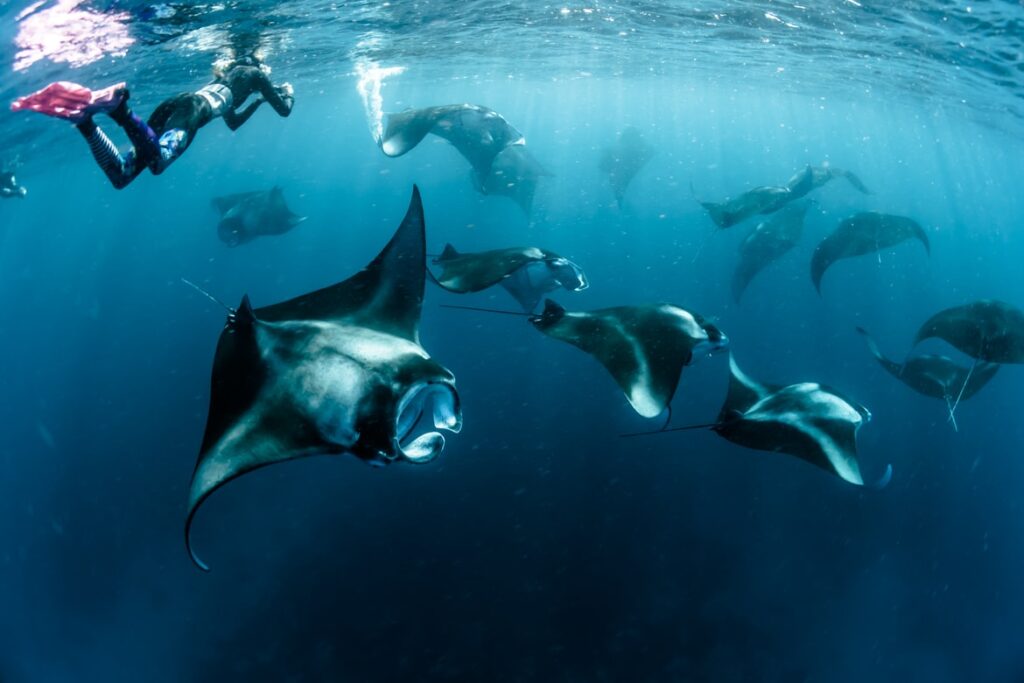
Food and drink
The Maldives is a paradise for fresh seafood, with a cuisine that features Indian, Sri Lankan and Arabic influence. Coconut, tuna and fragrant spices feature heavily in many dishes, while international resorts also offer a wide range of dishes from around the world. Here are some highlights to try during your stay:
Mas Huni: A traditional Maldivian breakfast of finely chopped tuna, onion, coconut and chilli, usually served with flatbread called roshi.
Garudhiya: A light fish soup, often accompanied by rice, lime, chilli and onions.
Fihunu Mas: Fresh fish marinated in chilli and spices, then grilled over an open flame.
Hedhikaa: Popular Maldivian snacks such as savoury pastries, samosas and fish cakes – perfect for an afternoon bite.
Coconut-based curries: Mild, aromatic curries often made with reef fish or vegetables and served with rice.
Tropical fruit: Papaya, mango, coconut and pineapple are fresh and plentiful.
Drinks: Alcohol is only served in licensed resort islands. Locals often enjoy refreshing non-alcoholic drinks such as young coconut water, fresh juices and black tea.
Tap water is generally not safe to drink in the Maldives, but most resorts provide complimentary bottled or filtered water.
Keep connected
Most travellers find it easiest to use an e-SIM, which you can purchase in advance from a trusted provider such as Airalo to stay connected from the moment you land. Local SIM cards are also widely available at Velana International Airport on arrival, but resorts do provide free Wi-Fi in rooms and public areas.
